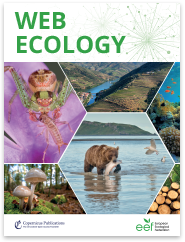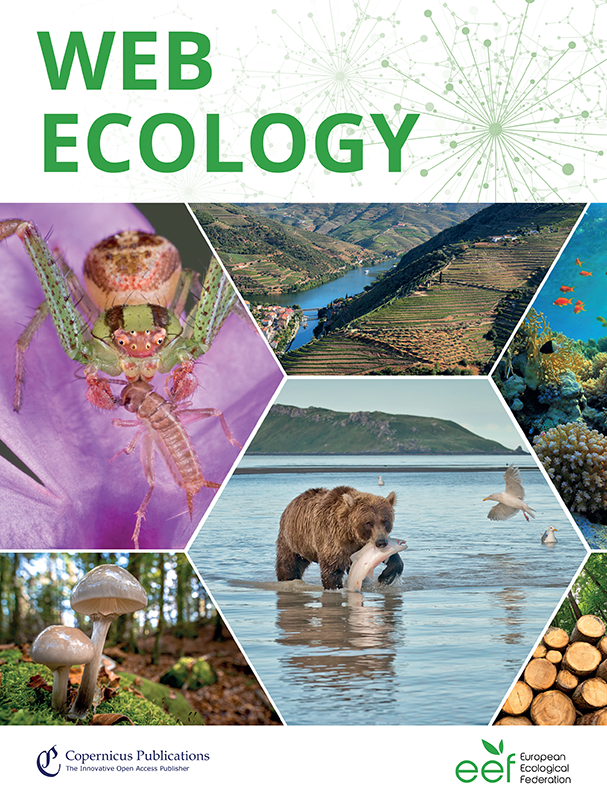
Web Ecology (WE) is an open-access journal issued by the European Ecological Federation (EEF), an organization representing the European ecological societies. Web Ecology publishes papers from all fields of ecology without any geographic restriction, but focused on the natural interactions that sustain communities, rather than on environmental policy or management. The journal is a forum to communicate results of experimental, theoretical, and descriptive studies of general interest to an international audience. Original contributions, short communications, and reviews on ecological research on all kinds of organisms and ecosystems are welcome, as well as papers that express emerging ideas and concepts with a sound scientific background. Papers must be original and not previously published in another journal. We also aim to serve as a publication forum for those European ecological societies that do not maintain their own society journal.


